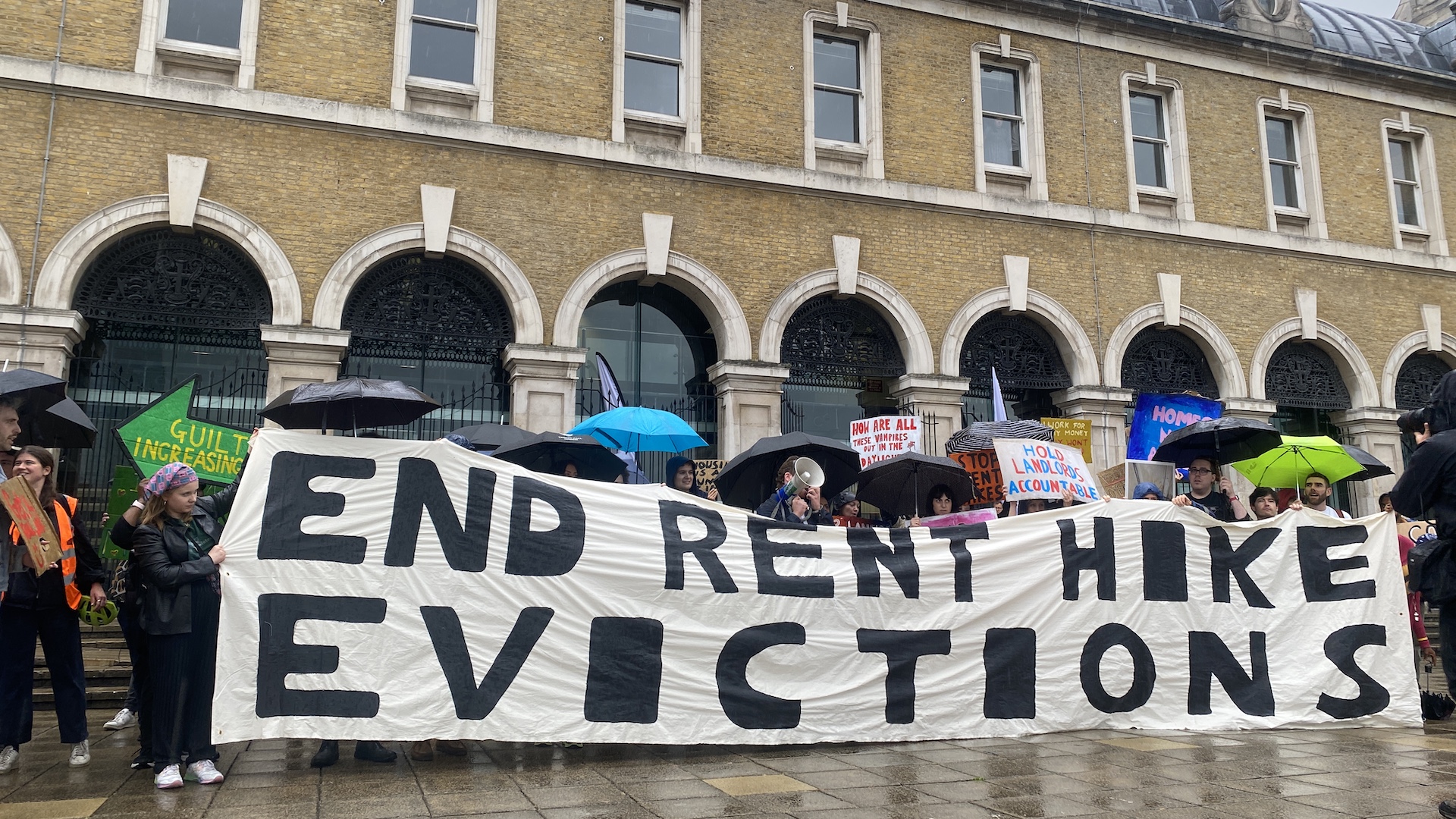“But when senior ministers are raking in thousands of pounds from tenants on the one hand and refusing to bring forward legislation to protect those same tenants on the other, then something is very, very wrong.
“Serious questions should be asked of any landlord MP who hasn’t given the Rental Reform Bill their fullest support.”
The Big Issue has launched its End Housing Insecurity Now campaign to keep renters in their homes. Add you voice by signing our petition below:
The Renters Reform Bill will rebalance the power between landlords and tenants. It will ban no-fault evictions, give renters more power to keep pets, and block landlords from excluding families with children or people receiving benefits from their properties.
The government is “absolutely committed” to the bill, a spokesperson said. “The bill which delivers our manifesto commitment is progressing through parliament and a second reading will follow shortly,” they added. During the second reading, MPs debate draft laws.
But leader of the House of Commons Penny Mordaunt omitted the bill from her announcement of business to come before the current parliamentary session ends. The next session begins on 7 November.
Advertising helps fund Big Issue’s mission to end poverty
With the next general election scheduled for some time next year, it is unclear when the bill will receive its crucial second reading.
Delays have already had a “devastating” human toll, warned Tom Darling, campaign manager of Renters’ Reform Coalition.
“Since the bill was introduced, every 15 minutes someone is issued with a section 21 eviction notice, out in the cold through no-fault of their own,” he explained “The idea that the legislation would actually be shelved entirely is appalling.”
More than 23,000 tenancies have been served no-fault eviction notices since April 2019, when the government first pledged to ban the practice. In the first half of this year alone, 4,478 households suffered this fate.
Your support changes lives. Find out how you can help us help more people by signing up for a subscription
To let the bill slide before the next election would be to “abandon” England’s 11 million private renters, Darling said.
Advertising helps fund Big Issue’s mission to end poverty
“Four years now since the bill was first promised in 2019, it is scarcely believable that it might now be dropped,” he added.
Osama Bhutta, Director of Campaigns at Shelter, described any backslide on the bill as “disgraceful.”
“The government cannot allow this Bill to be held hostage by a group of landlord backbenchers while so many renters continue to suffer,” he said.
“It’s pivotal it gets the Renters (Reform) Bill over the line and keeps its promise to protect the millions of people who call private renting home.”
According to the lettings agency Hamptons, year-on-year rents are soaring at their fastest rate for nine years. The price increase between August 2022 and August 2023 outpaced the entire increase seen between 2015 and 2019. The average monthly rent in Britain is now more than £1,300.
Renters need government support “now, more than ever,” urged Ben Twomey, chief executive of Generation Rent.
Advertising helps fund Big Issue’s mission to end poverty
“It is so disappointing to hear that political infighting could be delaying the change that is so desperately needed,” he said.
“This law would improve the lives of England’s 11 million renters and any Conservative MP standing in its way needs to re-read the manifesto that they stood on at the last General Election. They stood on a promise, written in black and white for all to see, to “bring in a better deal for renters, including abolishing ‘no fault’ evictions”.
Get the latest news and insight into how the Big Issue magazine is made by signing up for the Inside Big Issue newsletter
The government’s own impact assessment suggests that the law would cost landlords only £10 per rented property per year.
A spokesperson for the National Residential Landlords Association called on the government to provide “clarity” on when the bill will receive its second reading.
“With an unsettled economy still impacting the private rented sector, our members need guidance on what happens next regarding rental reform,” they said.
Advertising helps fund Big Issue’s mission to end poverty
“Yet events in recent weeks have served only to increase, rather than reduce, the level of uncertainty that the sector currently faces.”









